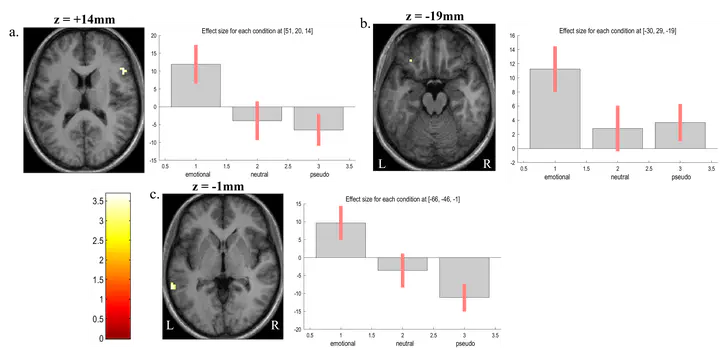 Areas activated for the emotional > neutral contrast
Areas activated for the emotional > neutral contrastThis was the course project for PSYC 0073 - Designing and Analysing fMRI experiments supervised by Prof Joseph Devlin. 78/100 Distinction achieved.
In general, the activations observed in the current study are consistent with previous findings, especially in semantic processing.
Across three contrasts, OFC activation was identified, suggesting that this area was commonly involved in the current lexical task, and its degree of activation depended on the types of stimuli. Left inferior and middle gyrus, bilateral temporal and parietal lobes showed greater activity in response to real words than to pseudowords.
However, activation of most areas involved in affective processing was not detected as predicted, which raises questions about our manipulation of word emotionality. Another explanation might be that the valence effects of positive words are generally more pronounced than those of negative words (e.g., Kuchinke et al., 2005). As we used negative words to represent emotional words in the study, the emotion effects were less obvious, or even non-existent. If future studies with exclusively positive words demonstrate significant emotion effects in brain activation, we might be able to deduce an asymmetry of sensitivity towards word valence.